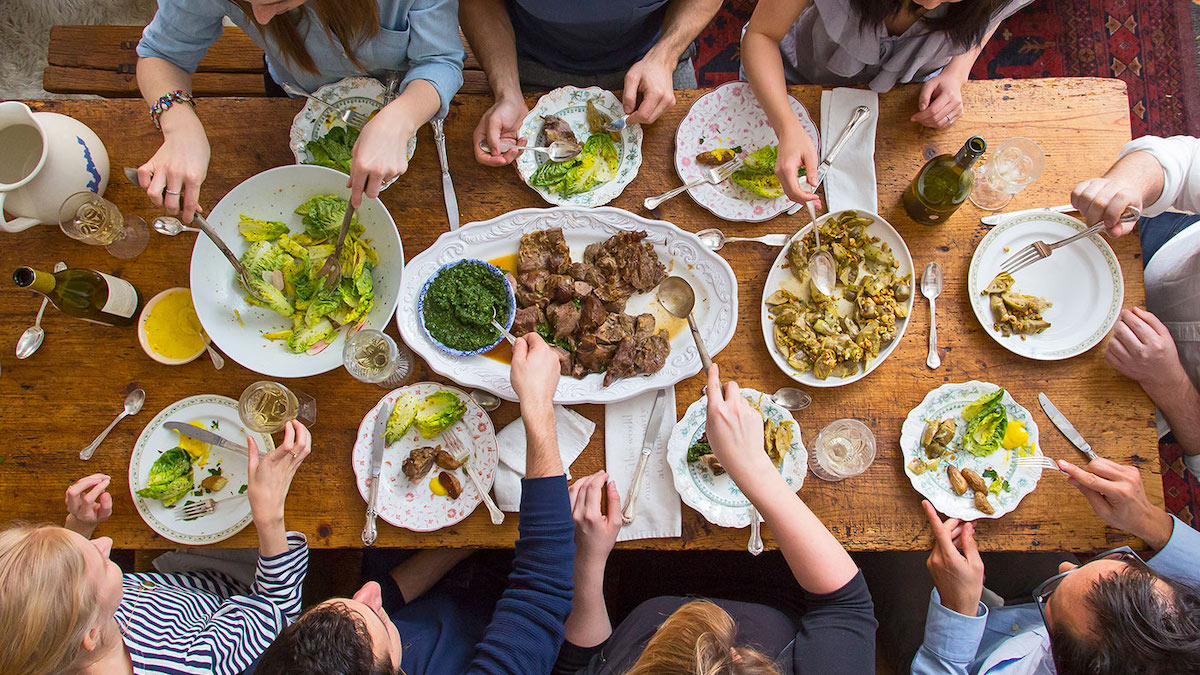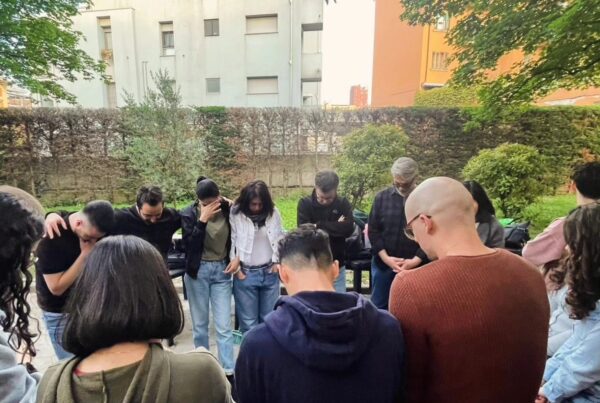With the holiday season upon us, I’m reminded again of the importance of hospitality and the role it plays in bringing people together. We began our church a little over five years ago and one struggle I didn’t anticipate but now feel is maintaining some level of connection to the people of our church as it grows. We have three young kids and it is often difficult to do something more than say a quick hello to someone new on a Sunday between potty breaks and hunger meltdowns. Do that for long enough and very subtly a level of disengagement creeps in and you may find yourself saying “I don’t know or recognize most of the people in our church!”
This is where my husband, Nick, and I found ourselves about nine months ago. The solution we came up with is what we call “hospitality dinners.”
We believe that hospitality plays a large role in the “knowing” of people.
There is something remarkable in the breaking of bread and it’s ability to disarm or bring down people’s guards. We can often focus on having the right theology, the right methods, the perfect vision or launching incredible programs and we can lose sight of the fact that most of Jesus’ ministry was done through relationship in the ordinary aspects of life — like sharing a meal and being in someone’s home.
We wanted to lead our church in being hospitable. We wanted to connect people that have been at our church for a while (and probably have some level of comfort there) with the newcomers in hopes of our church not feeling like a bunch of “cliques.” We also wanted to set aside time to get to know the people coming into our church in hopes of knowing how to best love and serve them. So, my very intentional husband made a spreadsheet and started to find commonalities between the people in our church and group them together for these dinners — there was a lot of color coding and the administration side of him was thoroughly pleased. The commonalities we made could be as simple as having young kids, living near each other, coming from the east coast, or all working in sales.
The night of these dinners we fill their bellies full of delicious food, eat by candlelight, share our stories and pray for one another. It sounds simple but we have found that the impact is profound. We laugh, we listen and we feel the joy and weight of being in the company with one another. On these nights we get a tiny glimpse of the power of presence that our Savior, Jesus, modeled for us during His time on earth.
To be realistic, if the church continues to grow, at some point it will become impossible for us to have points of connection with everyone in our church. But the hope is that if we are taking the time to do this now and modeling it well for the people in our church, then it will be replicated by those that got to partake in it and hospitality will permeate itself into the culture of the church.
An important thing to remember is that this hospitality should take place for both people inside and outside your church. For those within your church, sharing a meal and stories creates a deeper knowing of each other where the practicalities of your faith can take root. You will know how to pray for your people, what they are struggling with, what they are excited about, how to rejoice and celebrate God’s faithfulness to them, what difficulties they have encountered, etc.
Still, Jesus also calls us to minister to those outside of the church and it can be difficult to find a balance. We can become inundated with raising up new leaders, spearheading programs, counseling all the couples we possibly can at the expense of getting to know the people we literally share walls with (because it’s Orange County California and we live in a condo).
For those outside your church, like your neighbors and non-believers, having them over for dinner is a simple way of making them feel welcomed and known without making them first take the often difficult step of walking into your church. I believe it was Tim Keller who said a central component to evangelism in our day is relational credibility and we have absolutely seen this to be true. Hospitality is one of the easiest ways to build that credibility. For us in Orange County where no one wants to commit to anything and everyone is so busy they can’t keep their head on straight, it speaks volumes to people to carve out time to get to know them and make them a meal. That in and of itself is countercultural.
People feel loved when they feel heard. And what better way to hear from the people around you than over a home-cooked meal.










